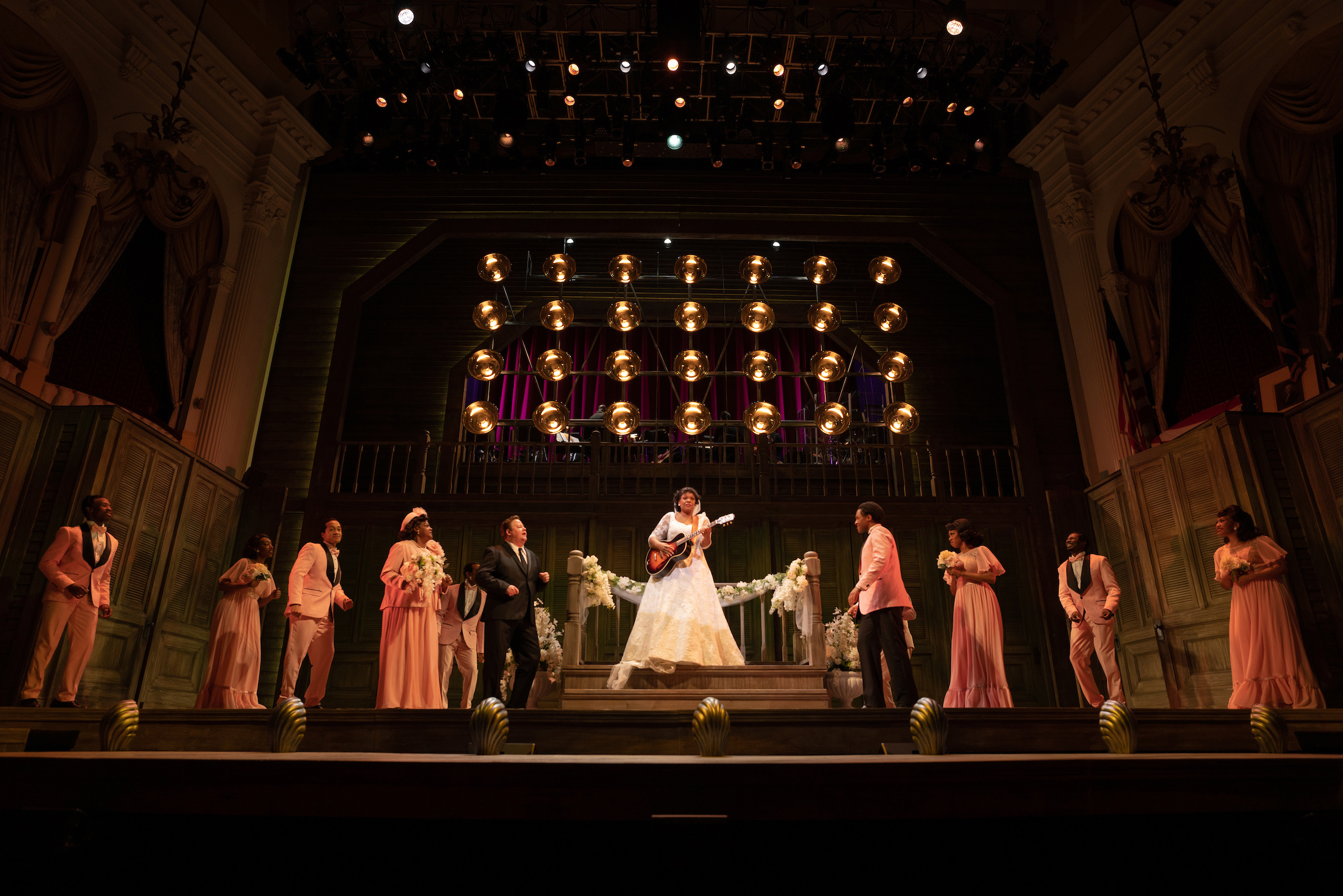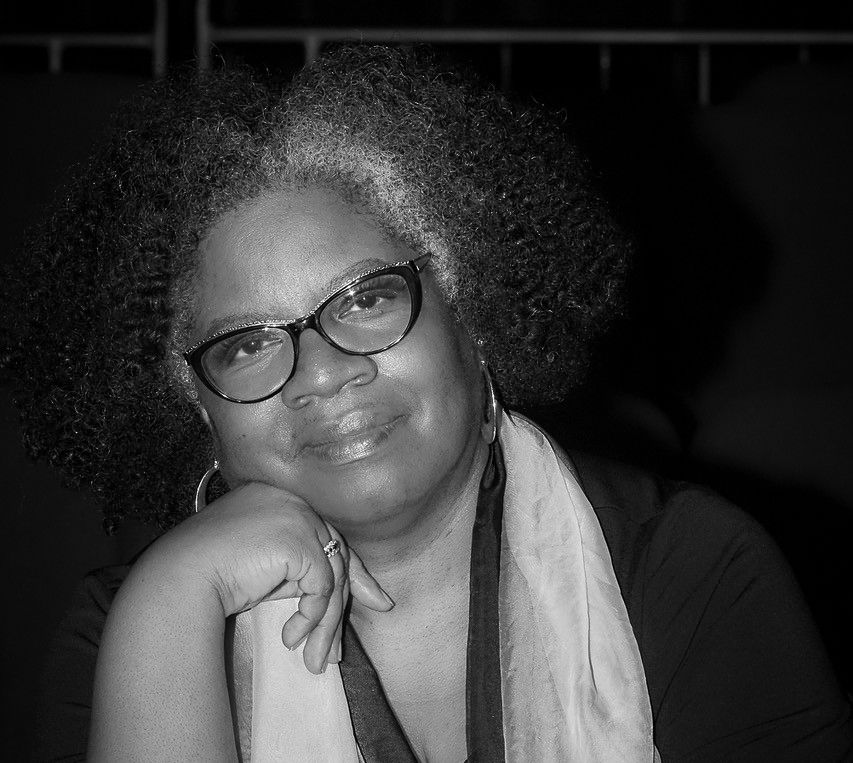
Playwright Cheryl L. West In Her Own Words: A Conversation with José Carrasquillo
SHOUT SISTER SHOUT!, making its East Coast premiere at Ford’s Theatre, is based on Gayle F. Wald’s book Shout, Sister, Shout! The Untold Story of Rock-and-Roll Trailblazer Sister Rosetta Tharpe. The stage adaptation is by prolific and award-winning playwright Cheryl L. West, whose work includes Before it Hits Home, Jar the Floor, Holiday Heart, Play On!, Akeelah and the Bee and FANNIE: The Music and Life of Fannie Lou Hamer.
José Carrasquillo (Director of Artistic Programming): When were you first made aware of the musical legacy of Sister Rosetta Tharpe?
Cheryl L. West (Bookwriter): The publication of Gayle F. Wald’s book was actually my introduction to Rosetta Tharpe. I thought Rosetta’s story was very theatrical—a pioneer, trailblazer, fierce woman who was called the godmother of rock-and-roll who inspired the likes of Johnny Cash, Elvis, Chuck Berry and Bonnie Raitt; an ambitious woman of courage, a woman who bent the rules in her music, in her sexuality, in her drive to be her fully authentic self. I wanted to know her, intrigued by her enormous amount of gritty courage and artistry. What could she teach me? What could she inspire in me? What could I write that would sufficiently honor Rosetta’s panoply of gifts?

Carrasquillo: Sister Rosetta Tharpe invented gospel pop with her recording of “Down by the Riverside.” Her style had a powerful influence on R&B music. Growing up, were you familiar with Sister Rosetta Tharpe’s ‘30s-’40s gospel recordings?
West: All of my family listened to gospel and sang gospel, particularly on Sunday mornings. I myself had never heard them play Rosetta but once I took on this project, my mother mentioned she had one of her records.
Carrasquillo: You have unparalleled experience with adapting your own theatrical work into film. But in addition, Play On!, your Tony-nominated adaptation of Shakespeare’s Twelfth Night—a production conceived and directed by Ford’s Senior Artistic Advisor Sheldon Epps, shifts the setting comfortably to Harlem in the ‘40s during the apex of swing. For that show, you leaned on the musical treasures of Duke Ellington. SHOUT! and Play On! are distinctively musical. Did you play any musical instruments? Do you see the work you create through a musical lens?
West: I am not a musician—though I wish I were—but all my work has music. Music inspires and invigorates me. My words have rhythm. I write to music, most often gospel but also blues, jazz and old school R&B. Music helps me connect with my own spirit and the ancestral spirit necessary to write authentically and joyfully.
Carrasquillo: Rosetta Tharpe had a very strong relationship with her mother, Katie Bell. How did you navigate their personal beliefs and generational differences and how were these translated to create dramatic tension between them?
West: It was clear Rosetta and Katie Bell shared a deep abiding love. Katie Bell was a stomp down Christian woman who herself was a trailblazer. She was a traveling evangelist. In her day, women did not leave home or their husbands to “preach the word.” Those that did faced much misogyny and discrimination, particularly Black women. And yet, Katie Bell and the 4-year-old prodigy, Rosetta, blazed a trail across the country ministering to all through their music until Rosetta reached adulthood. Whereas Katie was old school and strictly Bible-driven, Rosetta eventually bent the rules, combining genres of music—country, rock-and-roll and the blues—into a new and distinct sound. It’s reasonable that her mother would have bristled at Rosetta following a course so contrary to her own. And yet their love and respect for each other nourished and sometimes challenged their somewhat symbiotic relationship until Katie Bell’s death. One of the questions our show asks is: can familial love override a great divide in values and a child’s quest to find his or her own way when it is so different, so foreign from the choices of the parent?
Carrasquillo: The cultural musical legacy and contributions of many Black musicians of the ‘20s-’60s is still not getting adequate recognition by the music industry. Does Rosetta’s induction into the Rock and Roll Hall of Fame right a wrong? How do you want her to be remembered by the community that will join us this spring at Ford’s Theatre?
West: Rosetta’s induction was certainly long overdue. But obtaining the deserved recognition and the attendant financial compensation is an issue that Black artists have struggled with historically to this day. Hopefully, the Ford’s Theatre audiences will enjoy the show and seek more information on the life of this legendary woman. Sister Rosetta Tharpe blazed a trail and took the hits so that we could have an easier path to follow, particularly us women artists.
Learn more about SHOUT SISTER SHOUT! and buy tickets here.
José Carrasquillo is the Director of Artistic Programming at Ford’s Theatre.

